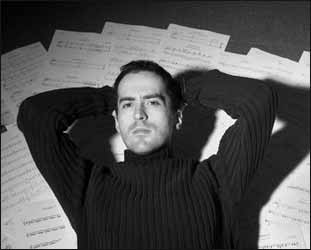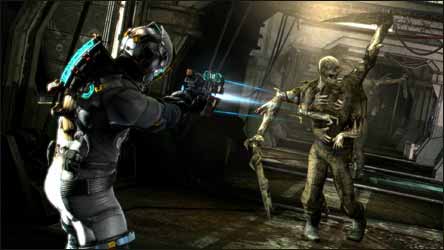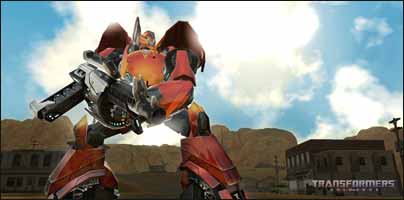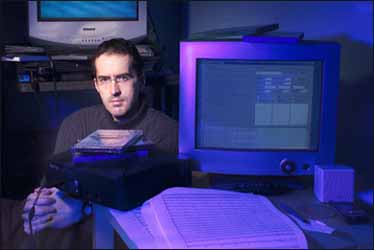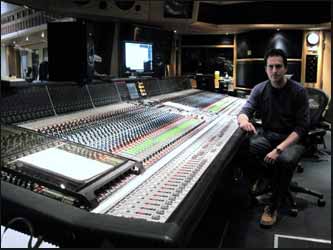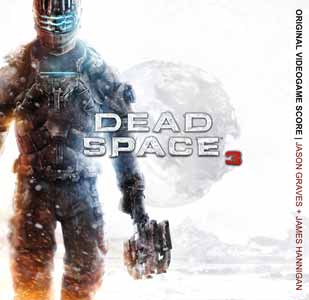|
Click here to return to the main site. James Hannigan (co-composer) - Dead Space 3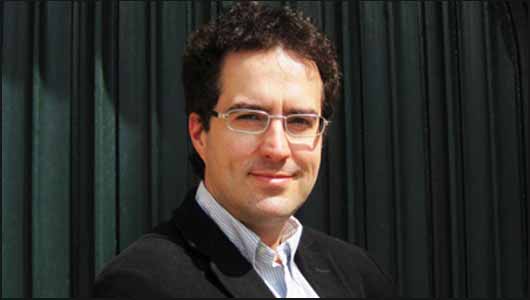 Born in 1971, James Hannigan is a BAFTA Award winner and five-time BAFTA Original Music nominee composer. His credits include entries in the Harry Potter, Command and Conquer, The Lord of the Rings, Warhammer, EA Sports and Theme Park game series’. For television he has worked on BBC America’s Primeval and Vietnam in HD. His most recent projects include Dead Space 3, the forthcoming Transformers Universe and newly updated music for RuneScape. Darren Rea caught up with Hannigan as the soundtrack to Dead Space 3 was released... Darren Rea: When did your interest in music start and when did you realise there might be a career for you with your talent? James Hannigan: I’ve always taken an interest in music and was lucky enough to grow up having access to a piano which, although can give you a very keyboard-centric and somewhat western perspective on music, is still a great tool for working through musical ideas and for initially sparking an interest. After placing some tracks in a Sony music library around the age of 20, I had the first bit of evidence that perhaps I could take things a bit further, but I didn’t actually feel comfortable calling myself a composer until some years after that. DR: When you originally moved to EA Games as in-house composer in the '90s were you at all apprehensive that it might mean you would be overlooked for future TV and film work - that studios somehow found games composers inferior back then? JH: I didn’t believe that this in itself would prevent me from working within other industries, but, yes, I must confess that I felt attitudes at that time were quite discouraging, and the general perception held by the public at large seemed to be that music in games mostly consisted of ‘bleeps and bloops’ or was simply rubbish. I was initially quite sympathetic to that view, as games weren’t really mainstream or widely understood at the time and, after all, even early sound in film was thought of in a similar sort of way. But in recent years, however, my attitude to anyone who persists in holding that kind of view, in the face of so much evidence to the contrary, has moved to being one of disbelief, really! DR: What's the one project you've been most pleased with the end result. Is there ever enough time and money? JH: There’s rarely enough time or money to realise music in exactly the way you want to for any given project, but that could simply be a problem inherent in any form of creative work. When you try to externalise what you have going on in your head, you never quite manage it fully I think, no matter how much time you spend trying. Overall, in terms of satisfaction levels and getting close to creating the kind of music I set out to create in a way that was truly appropriate for the project, I’m probably most pleased with my work on the Harry Potter series. But I also liked the way Freelancer came out as well, which was created by famed game designer, Chris Roberts. Not only because of the music itself, but because it was one of those projects where everything fell into place and there was a synergy between all of the elements. As standalone scores, I quite liked the way Republic: The Revolution and Evil Genius came out because, again, the scores were appropriate and simply had character, I hope. Individual tracks I quite like are ‘Soviet March’ and ‘Yuriko’s Theme’ from Command and Conquer: Red Alert 3, for similar reasons. These tracks were not typically Hollywood, you could say, and it’s nice to be able to explore new directions and draw on a variety of influences. DR: Can you tell us about your current work on Dead Space 3 and Transformers Universe. How would you describe the scores to game soundtrack collectors?
DR: Are you a big gamer yourself? And if so what games do you enjoy playing? JH: Yes, I love games, when I can find the time to play them. I see them as being as legitimate a form of entertainment as anything else, and I think games can only grow in significance - both as mainstream entertainment and in terms of the global cultural impact they have. But I don’t see them as offering the same types of experiences as films or books, for instance, or replacing those in any way. They occupy their own space and offer unique experiences. That isn’t to say games can’t create a kind of filmic reality or tap the film language, but the key to games is giving the player a sense of participation and immersion in the gameworld.
Seeing what’s up next is enough to keep me glued to the game, and I prefer this type of experience to more open-ended games. DR: Do you remember the first time a piece of music affected you in the cinema or on TV? JH: When I was about nine years old, for better or for worse, I got to see Hitchcock’s Psycho on TV, which had a huge impact on me. It didn’t particularly terrify me, as I was quite able to see it as a piece of entertainment and distinguish it from reality, but I was absolutely blown away by the power of Bernard Herrmann’s score. In particular, it was the sense of worry and uneasiness that the music brought about that fascinated me, and I became aware of the way in which music can determine a specific emotional response and add an important dimension to a film. The real horror of Psycho is communicated through its anxiety-inducing score and a great deal of information about the inner tension of characters is conveyed by music rather than through dialogue or visual cues alone. Other music that I enjoyed around the same time in the cinema included the dramatic and somewhat romantic scores of Star Wars, Star Trek and Raiders of the Lost Ark. But for someone growing up in the ‘70s and ‘80s, those are pretty much a given. DR: How did you feel the first time you heard your music played by an orchestra?
DR: If you could choose one piece you've written to be stored away for future mankind to discover what would you chose? JH: I’m not really sure that there’s anything of mine worth storing away for all time, but there’s a certain kind of theme I write that feels very tied into me as a person, and I’d like a few of those to survive me if at all possible. I particularly liked the theme I created for Harry Potter and the Order of the Phoenix, heard in tracks such as ‘Cho and Harry’, ‘Welcome to Hogwarts’ and ‘To Catch an Owl’. But a track of mine most likely to go on, whether I like it or not, is one called ‘Soviet March’ from Red Alert 3. It’s quite memorable, uplifting and fun, so it possibly has the right kind of ingredients to stick around for a while. DR: Who would compose the soundtrack to your life? JH: I’m quite a weird person, so it’d probably have to be some sort of horror score. Maybe Jason Graves could do it, as he has the chops for that sort of thing!
The soundtrack to Dead Space 3 is released through E.A.R.S. (EA Recordings) from 12 February 2013. Click here to buy the soundtrack to Dead Space 3 on MP3 for £7.49 (RRP: £13.99) Return to... |
|---|

